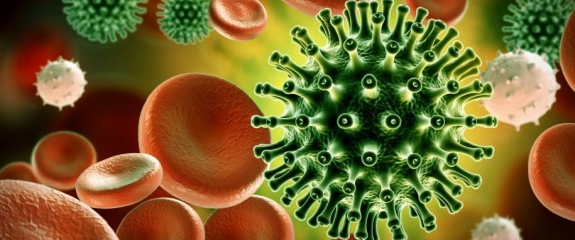HIV is Still Growing, Even When Undetectable in the Blood

A team of international researchers including scientists from Oxford University has found that HIV is still replicating in lymphoid tissue even when it is undetectable in the blood of patients on antiretroviral drugs.
The findings provide a critical new perspective on how HIV persists in the body despite potent antiretroviral therapy.
The study, led by Northwestern University, USA, is published in the journal Nature.
'We have a path to a cure,' said corresponding author Dr. Steven Wolinsky, chief of infectious diseases at Northwestern University Feinberg School of Medicine and a Northwestern Medicine physician. 'The challenge now is to deliver drugs at clinically effective concentrations to where the virus continues to replicate within the patient.'
Combinations of potent antiretroviral drugs quickly suppress HIV to undetectable levels in the bloodstream of most patients, but HIV persists in a viral reservoir within lymphoid tissue in the body. The virus rapidly rebounds in the blood if patients stop their drugs. This suggests that long-lived latently infected cells and/or ongoing low levels of HIV replication maintain these viral reservoirs.


